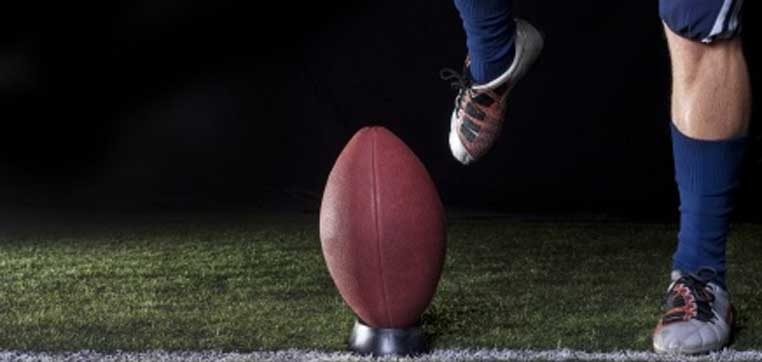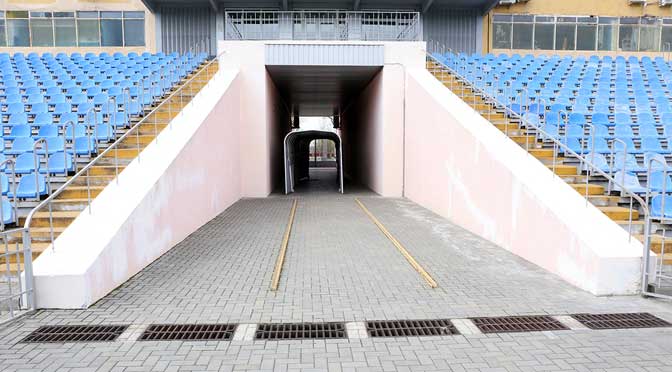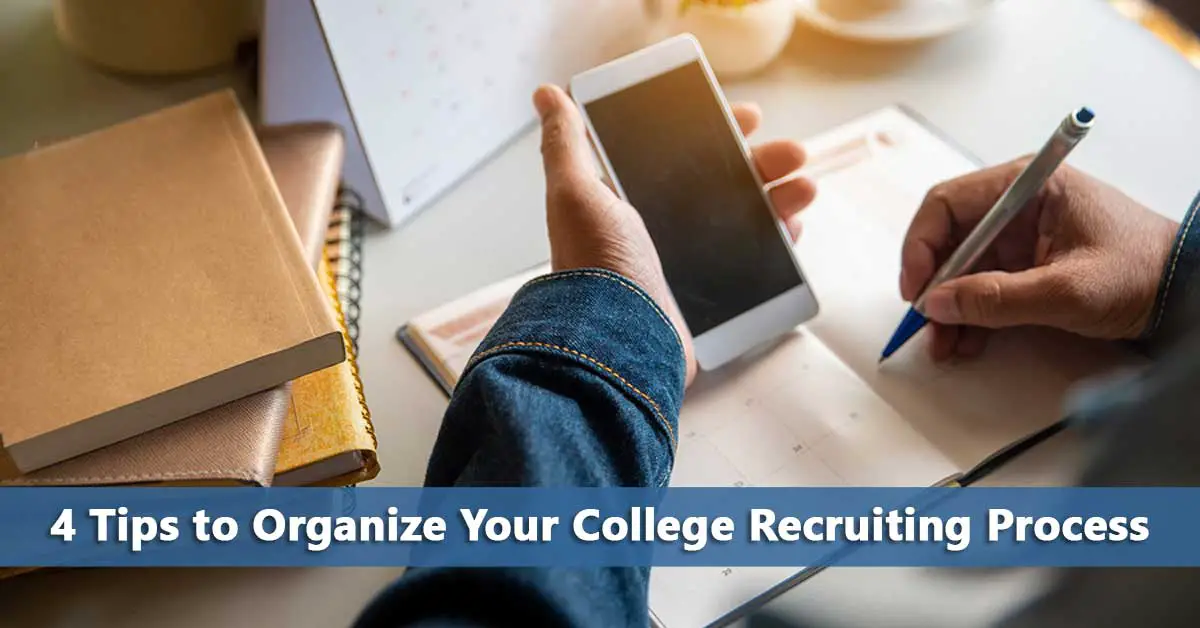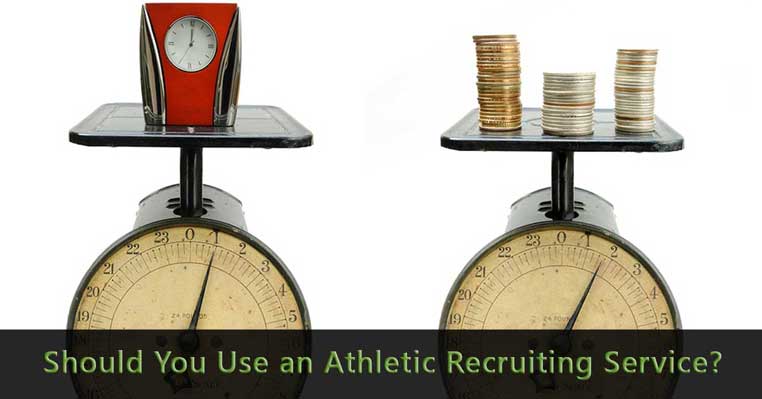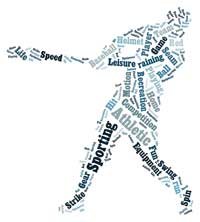 When people think of using baseball to get into college, they’re usually thinking about a coach offering a full-ride scholarship to play on the team. For those who still hold such delusions, time for a reality check. But there are still all sorts of ways baseball can help you get into college, including providing content for your college application essay.
When people think of using baseball to get into college, they’re usually thinking about a coach offering a full-ride scholarship to play on the team. For those who still hold such delusions, time for a reality check. But there are still all sorts of ways baseball can help you get into college, including providing content for your college application essay.
Athletics
Should you tell coaches about an injury during the recruiting process?
 Just asking this question suggests that it’s possible to hide the injury from the college coaches. I suppose it’s possible to hide an injury during the recruiting process if it occurs off-season and the player isn’t actually on crutches or doesn’t have an arm in a sling. But how many sports today actually have an off-season? Even those players being recruited in sports that do have a limited season such as football are likely to be playing other sports. Don’t you think the recruiting coach might wonder why the player is sitting out his secondary sport?
Just asking this question suggests that it’s possible to hide the injury from the college coaches. I suppose it’s possible to hide an injury during the recruiting process if it occurs off-season and the player isn’t actually on crutches or doesn’t have an arm in a sling. But how many sports today actually have an off-season? Even those players being recruited in sports that do have a limited season such as football are likely to be playing other sports. Don’t you think the recruiting coach might wonder why the player is sitting out his secondary sport?
Must Read for High School Baseball Players and their Parents
 There is a post at the Next Level Baseball Player blog that all high school baseball players who want to play college baseball and their parents should read “A Raw Look Inside College Baseball Recruiting.” It’s an email from a coach at a D1 university responding to a father who asked why his kid isn’t good enough to play for the coach’s college baseball program.
There is a post at the Next Level Baseball Player blog that all high school baseball players who want to play college baseball and their parents should read “A Raw Look Inside College Baseball Recruiting.” It’s an email from a coach at a D1 university responding to a father who asked why his kid isn’t good enough to play for the coach’s college baseball program.
5 Ways to Get Smart About College Softball Recruiting
 Looking for information on college softball recruiting is a frustrating experience. It seems that there are lot more websites out there interested in selling you their recruiting services than providing information. But such informative sites do exist and some of them are actually recruiting services. However, before you decide to hire a recruiting service, use the following sites to educate yourself on the college softball recruiting process.
Looking for information on college softball recruiting is a frustrating experience. It seems that there are lot more websites out there interested in selling you their recruiting services than providing information. But such informative sites do exist and some of them are actually recruiting services. However, before you decide to hire a recruiting service, use the following sites to educate yourself on the college softball recruiting process.
Who Pays for a College Athlete’s Health Insurance and Medical Care?
 If as a college athlete you don’t expect to make enough money from the Name, Image, and Likeness (NIL) rule to cover your own health insurance, don’t expect the NCAA to be picking up the tab. All college athletes are required by the NCAA to have healthcare insurance. The NCAA does not mandate colleges to pay the healthcare costs for athletes. Should a player be injured, the parent’s insurance is considered the primary insurance for paying for the athlete’s injury costs. This shouldn’t come as a surprise since the term “student-athlete” was created so that colleges wouldn’t be held liable for sports related injuries.
If as a college athlete you don’t expect to make enough money from the Name, Image, and Likeness (NIL) rule to cover your own health insurance, don’t expect the NCAA to be picking up the tab. All college athletes are required by the NCAA to have healthcare insurance. The NCAA does not mandate colleges to pay the healthcare costs for athletes. Should a player be injured, the parent’s insurance is considered the primary insurance for paying for the athlete’s injury costs. This shouldn’t come as a surprise since the term “student-athlete” was created so that colleges wouldn’t be held liable for sports related injuries.
How to Start the College Athletic Recruiting Process
 You’ve heard the saying, “you don’t know what you don’t know?” It’s relevant to college athletic recruiting–when starting out, many families don’t know where to begin or what to ask. So I put together this list of posts for athletes and their families just starting the college athletic recruiting process. After reading these, you should have a basic understanding of college athletic recruiting that will allow you to start asking the right questions.
You’ve heard the saying, “you don’t know what you don’t know?” It’s relevant to college athletic recruiting–when starting out, many families don’t know where to begin or what to ask. So I put together this list of posts for athletes and their families just starting the college athletic recruiting process. After reading these, you should have a basic understanding of college athletic recruiting that will allow you to start asking the right questions.
Athletic Scholarships: 12 Things You Need to Know
 I’m always amazed at how little players and their families know about athletic scholarships. Given that most of them have been justifying playing their sport for the chance at a college scholarship since middle school, you would think they would be better informed. Depending on the sport and division, scholarships can be very limited. It’s kind of like someone planning a trip to Europe and not realizing they need a passport for traveling. Yes, some of the stuff people are missing is pretty basic.
I’m always amazed at how little players and their families know about athletic scholarships. Given that most of them have been justifying playing their sport for the chance at a college scholarship since middle school, you would think they would be better informed. Depending on the sport and division, scholarships can be very limited. It’s kind of like someone planning a trip to Europe and not realizing they need a passport for traveling. Yes, some of the stuff people are missing is pretty basic.
4 Simple Tips to Organize the Recruiting Process
 College athletic recruiting is a process of narrowing down school choices while collecting increasingly detailed information about those choices and not losing track of where you are during the process. Piece of cake-right! The problem is that athletes won’t always be at the same stage in the recruiting process for every college they’re considering. One school may be at the “received a mass email flyer for a summer camp” stage while another is at the “scheduling an official visit” stage. So how do you keep track of everything? Here are four ways to organize the recruiting process.
College athletic recruiting is a process of narrowing down school choices while collecting increasingly detailed information about those choices and not losing track of where you are during the process. Piece of cake-right! The problem is that athletes won’t always be at the same stage in the recruiting process for every college they’re considering. One school may be at the “received a mass email flyer for a summer camp” stage while another is at the “scheduling an official visit” stage. So how do you keep track of everything? Here are four ways to organize the recruiting process.
Should You Use an Athletic Recruiting Service?
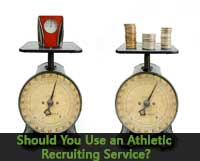 As students and parents start to wade into the college athletic recruiting process, they’ll soon see all kinds of advertisements, websites, and offers from athletic recruiting services. All promise to help you with getting an athletic scholarship because, they’ll tell you, they have access to people and information that you don’t. And as the wading starts to feel like drowning as parents begin to realize how much college costs and how many colleges are actually out there, paying for a recruiting service doesn’t seem like such a bad idea.
As students and parents start to wade into the college athletic recruiting process, they’ll soon see all kinds of advertisements, websites, and offers from athletic recruiting services. All promise to help you with getting an athletic scholarship because, they’ll tell you, they have access to people and information that you don’t. And as the wading starts to feel like drowning as parents begin to realize how much college costs and how many colleges are actually out there, paying for a recruiting service doesn’t seem like such a bad idea.
Is it?






